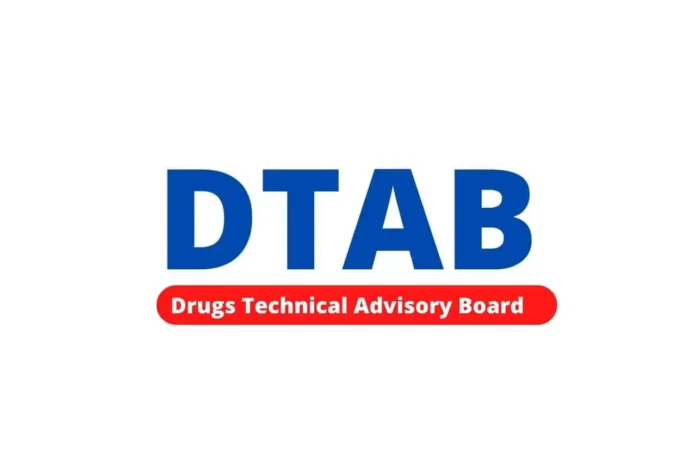Last Updated on December 31, 2023 by The Health Master
Prohibition on FDC of Vitamin B1, B6, and B12
The Drugs Technical Advisory Board (DTAB) recently rejected a representation from a multinational pharmaceutical company, urging the revocation of the ban on the use of the fixed dose combination (FDC) of vitamin B1, B6, and B12 in the country.
The DTAB stated that the justification and documents provided were insufficient to support the lifting of the prohibition.
This decision comes despite the company’s claims that scientific advancements and numerous clinical studies demonstrate the therapeutic benefits of the FDC.
DTAB Meeting Considers Representation:
During a recent board meeting, the DTAB thoroughly examined the representation submitted by a multinational healthcare firm, P&G.
The company requested a reconsideration of the ban on the manufacture, sale, and distribution of the FDC.
They argued that advancements in science have led to the study of alternative quantitative compositions of vitamin B1, B6, and B12.
The firm emphasized that published clinical studies support the efficacy and rationale behind the FDC’s therapeutic application.
DTAB’s Decision and Request:
After careful deliberation, the DTAB decided not to revoke the prohibition on the FDC.
They highlighted that the provided justification and supporting documents were insufficient to warrant the lifting of the ban.
However, the DTAB did urge the Ministry of Health and Family Welfare and the Central Drugs Standard Control Organisation (CDSCO) to consider evaluating the FDC with different quantitative compositions for specific indications.
They emphasized that there are ample published clinical studies supporting the therapeutic benefits of the FDC.
Scientific Rationale and Market Presence:
The multinational firm, P&G, presented evidence of numerous clinical studies conducted using different levels of the FDC for various indications.
These include vitamin B deficiencies, neuropathy caused by conditions such as diabetes, repetitive stress or trauma (e.g., carpal tunnel syndrome), alcohol abuse, autoimmune diseases like rheumatoid arthritis, chronic inflammation, and other nervous system disorders.
The company highlighted that products containing varying levels of the FDC have been marketed worldwide for over 50 years.
These products have gained wide acceptance in clinical practice and are available both over the counter (OTC) and on prescription, depending on the vitamin strengths and application route.
P&G also provided examples of countries such as Hungary, Czech Republic, and Indonesia that have approved the same formulation and indication for the FDC.
DTAB’s Justification for Maintaining the Prohibition:
The minutes of the DTAB meeting clearly state that the board found the justification and documents submitted by P&G to be inadequate for revoking the ban on the FDC.
Consequently, the DTAB disagreed with the revocation of the prohibition on the manufacture, sale, or distribution of the fixed dose combination of vitamin B1, B6, and B12.
Background and Ban Notification:
Previously, the FDC was available in both oral and injection forms for the treatment of neuropathy and other indications in India.
However, it was banned in the country on October 14, 199, through an official notification effective from January 1, 2001.
The ban was imposed on the grounds that the FDC did not possess the therapeutic value claimed or purported to be claimed.
Clarification by the Drugs Controller General (India):
In January 2000, the Drugs Controller General (India) (DCGI) issued a clarification stating that the ban solely applied to the manufacture, sale, or distribution of the FDC comprising vitamin B1, B6, and B12.
The ban did not extend to other multivitamin preparations containing B-complex drugs.
Conclusion:
Despite a representation from a multinational pharmaceutical company advocating for the revocation of the ban on the FDC of vitamin B1, B6, and B12, the DTAB concluded that the justification and supporting documents provided were insufficient to support the lifting of the prohibition.
The DTAB recommended further evaluation of the FDC with different quantitative compositions for specific indications.
The decision highlights the importance of robust scientific evidence in influencing regulatory decisions regarding drug combinations.
DTAB rejects proposed amendment to Phytopharmaceutical Drug Definition in NDCTR, 2019
DTAB recommends ban on Ketoprofen and Aceclofenac for Animal
DTAB: Proposal to restrict Nicotine Replacement Therapies Sales to Prescription Only
DTAB recommendation: On presence of banned antibiotics in food producing animals
DTAB: Proposal to Amend Medical Devices Rules for Hospital Imports
USFDA approves drug for growth hormone deficiency in kids
DTAB rejects proposed amendment to Phytopharmaceutical Drug Definition in NDCTR, 2019
USFDA issues Form 483 with one observation to Gland Pharma: Hyderabad
Prescribe generic medicines only: Health Dept
Export Promotion Council for Medical Devices added to Foreign Trade Policy
US Drug Shortages present growth opportunities for Indian Pharma Companies
USFDA completes inspection at Ajanta Pharma with zero observations: Gujarat
DTAB recommends ban on Ketoprofen and Aceclofenac for Animal
One held for allegedly storing 36,238 bottles of banned cough syrup








